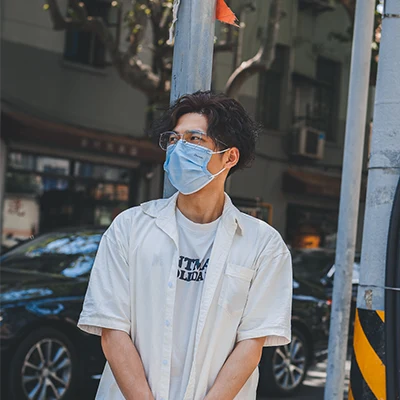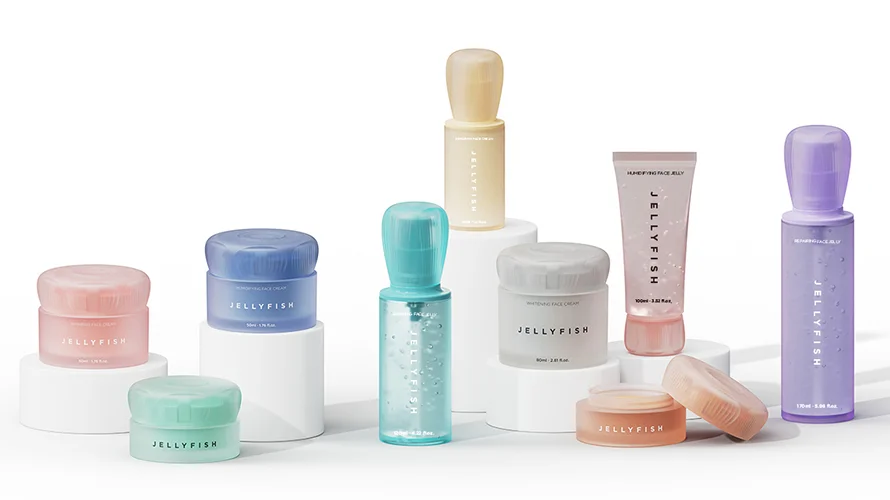A quick overview of the topics covered in this article.
- Typer hudpleieemballasje
- Faktorer å vurdere når du velger hudpleieemballasje
- Fordeler og ulemper med hver emballasjetype
- Populære trender innen emballasjedesign
- Innvirkning av hudpleieemballasje på produktposisjonering
- Emballasje og merkeidentitet
- Bærekraftige og miljøvennlige alternativer
- Effekter på transport og lagring
- Konklusjon
Subscribe to the UKPACK newsletter to receive regular updates on the company, products, services, upcoming exhibitions and more.
When it comes to skincare products, packaging is not just about aesthetics; it plays a crucial role in showcasing the product’s formula and providing a positive user experience. The right skincare packaging can make a significant difference in how your customers perceive and interact with your skincare products.
In this article, we will explore various types of skincare packaging and the factors to consider when choosing the most suitable option for your specific product.
Types of Skincare Packaging
1. Pump Bottles
Ideal for lotions and creams, pump bottles offer precise dispensing and minimize product contamination. They are user-friendly and help maintain the integrity of the formula.
2. Plastic Bottles
Commonly used for lotions, plastic bottles are lightweight and shatter-resistant. They are cost-effective and come in various sizes, making them a practical choice for a wide range of skincare products.
3. Glass Bottles
Glass bottles add a touch of luxury to skincare products and are perfect for lotions. They provide an airtight seal, preserving the freshness and efficacy of the contents, but they are heavier and can be more fragile.
4. Closures
Thin toners and liquid skincare products often come with closures that allow controlled pouring. These are convenient for products that require a few drops or a gentle application.
5. Droppers
For serums and oils, dropper bottles are a popular choice. They offer precision and prevent product waste by allowing users to dispense small, controlled amounts.
6. Jars
Thick creams and lotions find their home in jars. These containers offer a luxurious feel and allow easy access to the product, but they can be less hygienic and expose the formula to air and contaminants.
7. Tubes
Pastes and balms are well-suited to tubes. They are practical, easy to squeeze, and help prevent product oxidation. Tubes are a great option for on-the-go skincare solutions.
8. Compacts
Powders and balms, such as foundation or blush, are commonly packaged in compacts. These are portable and come with applicators, making them convenient for makeup application.
9. Sprayers
Mists and water-based skincare products benefit from sprayers, providing a fine and even distribution of the product. They are refreshing and quick to apply.
10. Lip Gloss Containers
Lip balms and oils come in compact containers designed for lip-specific products. These are small, convenient, and often feature applicators for easy use.
Factors to Consider When Choosing Skincare Packaging
When deciding on the appropriate packaging for your skincare line, several crucial factors should be taken into account:
1. Product Form and Texture
Consider the consistency of your skincare product. Is it a thick cream, a thin liquid, or a powder? The packaging should be compatible with the product’s texture.
2. Ingredient Stability
Certain ingredients, like Vitamin C, are sensitive to light and air. Packaging that protects against exposure to these elements is essential to maintain the product’s effectiveness.
3. Weight and Shipping Costs
The weight of the packaging and the product itself can impact shipping costs. Lightweight packaging can help reduce expenses.
4. Cost of Packaging
Your budget plays a role in determining the packaging type. Balance cost with the desired level of quality and aesthetics.
5. User Experience
Packaging should be easy to use, clean, and store. It should also offer a pleasant tactile experience for the customer.
6. Visual Appeal
Aesthetics matter in the skincare industry. Packaging should align with your brand and product image, catching the eye of potential customers.
Pros and Cons of Each Packaging Type
When selecting packaging for your product, it’s helpful to consider the advantages and disadvantages of each option:
| Types | Pros | Cons |
|---|---|---|
| Pump Bottles | Allows controlled dispensing, hygienic, preserves product. | Can clog or break. |
| Plastic Bottles | Inexpensive, lightweight, variety of shapes. | Not luxury looking, less sustainable. |
| Glass Bottles | Luxurious image, impermeable to air and microbes. | Heavy, fragile, higher cost. |
| Closures | Simple, spill-proof, little waste. | Not suitable for thick liquids. |
| Droppers | Dispenses precise amounts, easy to control. | Can leak or get clogged. |
| Jars | Displays product texture, allows scooping. | Less sanitary, exposes product to air. |
| Tubes | Protects product, allows control, efficient. | Can crack and leak. |
| Compacts | Portable, often includes mirror. | Powder can shatter if dropped. |
| Sprayers | Lightweight, dispenses product easily. | Over-dispensing, clogging risk. |
Popular Packaging Design Trends
Some current trends in skincare packaging design include:
- Minimalist, simple shapes and labels – Clean aesthetics convey purity.
- Vintage inspired – Retro styling appeals to consumers seeking nostalgia.
- Bold, artistic patterns and colors – Visually striking decoration stands out.
- Transparent packaging – Allows consumers to see product color and texture.
- Natural materials like wood, bamboo, etc. – Communicates an earthy, organic vibe.
- Refillable containers – Reduce waste and appeal to eco-conscious buyers.
- Travel sizes – Portable packs for on-the-go use.
More Resource:
Impact of Skincare Packaging on Product Positioning
The packaging design sends distinct signals about the product’s positioning and who it is marketed towards. For example:
- Clean, minimalist skincare packaging conveys a clinical, scientific positioning. This appeals to customers looking for effectiveness.
- Vintage inspired packaging taps into nostalgia and communicates a homemade, artisanal vibe.
- Bright, fun colors and patterns give a playful, youthful energy. This attracts younger demographics.
- Elegant, luxurious materials like glass and rose gold communicate premium quality and exclusivity.
- Reusable, eco-friendly materials appeal to the sustainability-focused consumer segment.
In essence, packaging is a critical touchpoint for conveying brand image and product personality.
Packaging and Brand Identity
The packaging is essentially a portable billboard for the brand. Smart packaging choices strongly reinforce brand identity.
For example, a clinical med-spa brand would choose clean, minimalist packaging in white or neutral colors.
An organic beauty brand would emphasize natural textures like wood caps and linen labels on their packaging.
A fun, indie brand could use bold graphics, bright colors and playful fonts to reflect their image.
Established luxury beauty brands often have signature packaging elements that are recognizable at a glance – like Chanel’s quilted cases or MAC’s basic black packaging.
Consumers closely associate packaging aesthetics with brand identity. Using consistent, memorable packaging is key for building brand equity.
Sustainable and Eco-Friendly Options
Many consumers now expect and demand eco-conscious practices from brands. Sustainable skincare packaging options include:
- PCR plastic – Made using post-consumer recycled plastic waste
- Bioplastics – Derived from plant sources like corn starch instead of petroleum
- Bamboo – Renewable and compostable material
- Compostable packaging – Breaks down completely in commercial composting
- Refillable – Allow consumers to reuse packaging and reduce waste
- Reduced packaging – Using less material, avoiding outer boxes
- Recyclable materials – Making components easy to recycle
Brands should evaluate their supply chain and packaging to identify areas for “greening” their practices. This satisfies eco-aware consumers.
Effects on Transportation and Storage
Packaging choices affect the logistics of transporting and warehousing the product.
Lighter plastic bottles reduce shipping costs compared to heavy glass. But glass provides better protection.
Bulky compacts take up more storage and shelf space than sleek tubes.
Fragile glass requires more protection during shipping than durable plastic or metal.
Leaks and spills are a risk with pumps and droppers versus capped bottles.
The size and shape of the packaging impacts how many units fit into shipping boxes and onto pallets.
Optimizing packaging for transport and storage efficiency provides business operation benefits.
Conclusion
Selecting the right packaging is a crucial decision when developing a skincare product. The packaging conveys brand image, provides an enjoyable user experience, and protects the formula.
It’s important to work with packaging experts to evaluate all the options and select the best fit considering your product’s texture, ingredients, target consumer, positioning, supply chain logistics, and sustainability initiatives.
Attractive yet functional packaging makes a significant impact on how consumers perceive and enjoy your product. Investing in packaging that aligns with your brand story and effectively showcases your formula is worth the effort and cost.
With careful testing and decision making, you can create skincare packaging that delights customers, builds your brand, and takes your products to the next level. The right packaging combines visual appeal, usability and quality to support and enhance the star formula inside.
At UKPACK, we are your trusted skincare packaging supplier to meet your needs. We offer a one-stop solution to support your business. If you have any questions, please feel free to contact us today! Our packaging experts will help you.

Content Manager at UKPACK. I have extensive experience in the packaging industry and specialize in creating engaging content. I’m passionate about staying ahead of industry trends.
What Is a Tottle Bottle? The Ultimate Guide to This Unique Packaging Solution
If you’ve ever used a squeezable sunscreen or a foundation that stands upside down, chances are you’ve encountered a tottle bottle. This unique hybrid packaging combines the best features [...]
What is Cosmetic Packaging? Everything You Need to Know About It
As someone who has worked in the cosmetic packaging industry for years, I know firsthand how critical packaging is to a product's success. Whether it's skincare, makeup, or fragrances, [...]
The Ultimate Guide to Sunscreen Packaging in 2025: Trends, Materials, and Best Practices
As an outdoor enthusiast, I’ve tried countless sunscreen products over the years—whether it’s for hiking in the mountains or lounging by the beach. But one recurring frustration I’ve faced [...]




